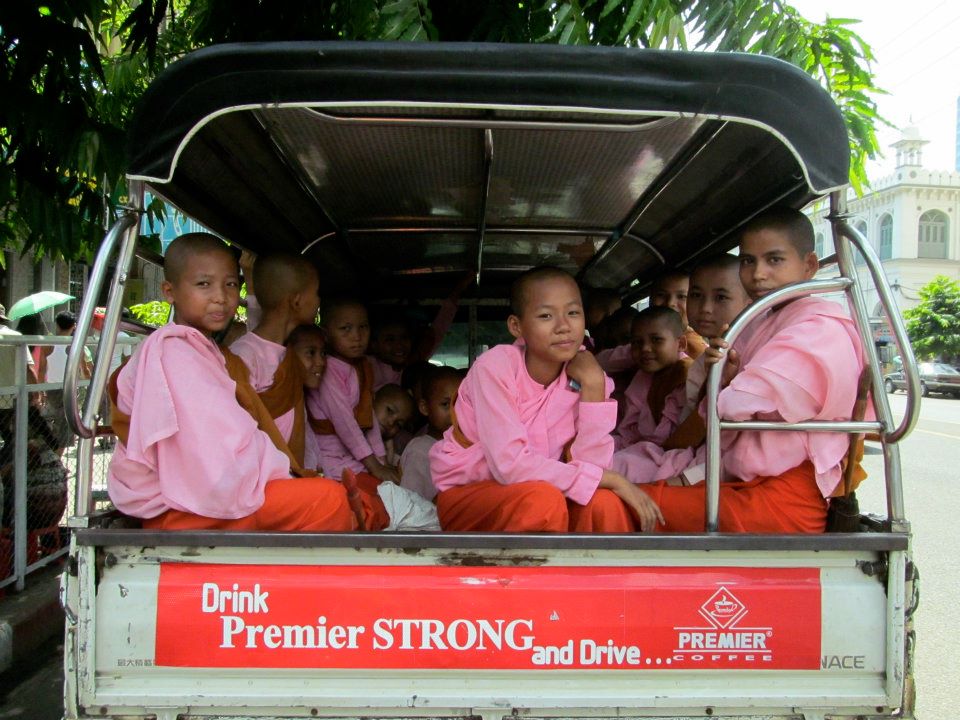Opposition to Burma’s proposed Interfaith Marriage Act continues to grow as the legislation moves closer to parliament. Last week, 97 civil society organisations publicly denounced the new rules as discriminatory against women and minority faiths. That constituency, which has now grown to include more than 150 organisations, wrote to President Thein Sein on Wednesday to request a meeting with some of Burma’s most influential politicians.
“We are asking for a meeting with the president, the Rule of Law Committee chair [Aung San Suu Kyi], the parliament’s Speaker, and the chairman of the drafting committee to share our opinions and submit suggestions on the legislation,” said May Sabe Phyu, senior coordinator of the Gender Equality Network, who has consistently been among the most outspoken critics of the proposal.
The Interfaith Marriage Act is part of a legislative package tasked to a drafting committee in February. The laws, known often as the National Race and Religion Protection Bills, were initially proposed in July 2013 by a coalition of nationalist monks associated with the National Head Monks Committee, a government-appointed religious oversight body.
The laws have been controversial from the get-go, seen by many as an attempt to further institutionalise anti-Muslim sentiment in the wake of nearly two years of intensified violence against Muslims stemming from decades of dormant mistrust and contempt. As detractors catch up with the bills’ supporters — who have speedily advanced the regulations — criticism has become louder, faster and broader.
[related]
The Interfaith Marriage Act has come under particular scrutiny. Not only does the proposed law — which would require any non-Buddhist man to convert in order to marry a Buddhist woman — create excessive barriers to a Muslim man’s freedom of faith, it is also widely regarded as detrimental to women of all faiths.
“This law would strip away from women their right to freely decide whom to marry, and would mark a major reversal for religious freedom and women’s rights in Burma,” Asia director for Human Rights Watch (HRW), Brad Adams, remarked in March. A statement by HRW said that they had viewed a draft of the legislation, which effectively bans interfaith weddings by mandating conversion to Buddhism. The law also stipulates that the bride’s parents must provide written consent for the marriage, which goes beyond compromising a woman’s right to choose her partner; it gives her family legal veto power over her choices. It further subjects both she and her partner to sentences of up to ten years in jail for violations.
The possibility that a family would use that power against their daughter’s desires is real; Buddhist women with Muslim partners are convenient targets for ethno-religious anxiety in Burma. As recently as mid-April, four family homes were burned down by a mob in Pegu after a Buddhist woman refused to “turn over” her Muslim partner for purposes that remain unknown.
As Wednesday’s letter to Thein Sein shows, people in Burma are speaking out on this issue, but so far they are being ignored. The authors have not received any response to their request to sit down with decision-makers and express their opinion on rules that affect their lives. Moreover, the coalition of monks that originally lobbied for the rules have publicly called their opponents “traitors” who are “not loyal to the state”. The president’s spokesperson Ye Htut evaded the issue last week by claiming that because the drafting committee was explicitly told that the law could not violate women’s rights, it didn’t.
The “protection” package already has a spot on the packed agenda for Burma’s next parliamentary session, which will begin on 28 May. As that date nears, it seems clear that civil society is becoming increasingly impatient with tautological answers.



